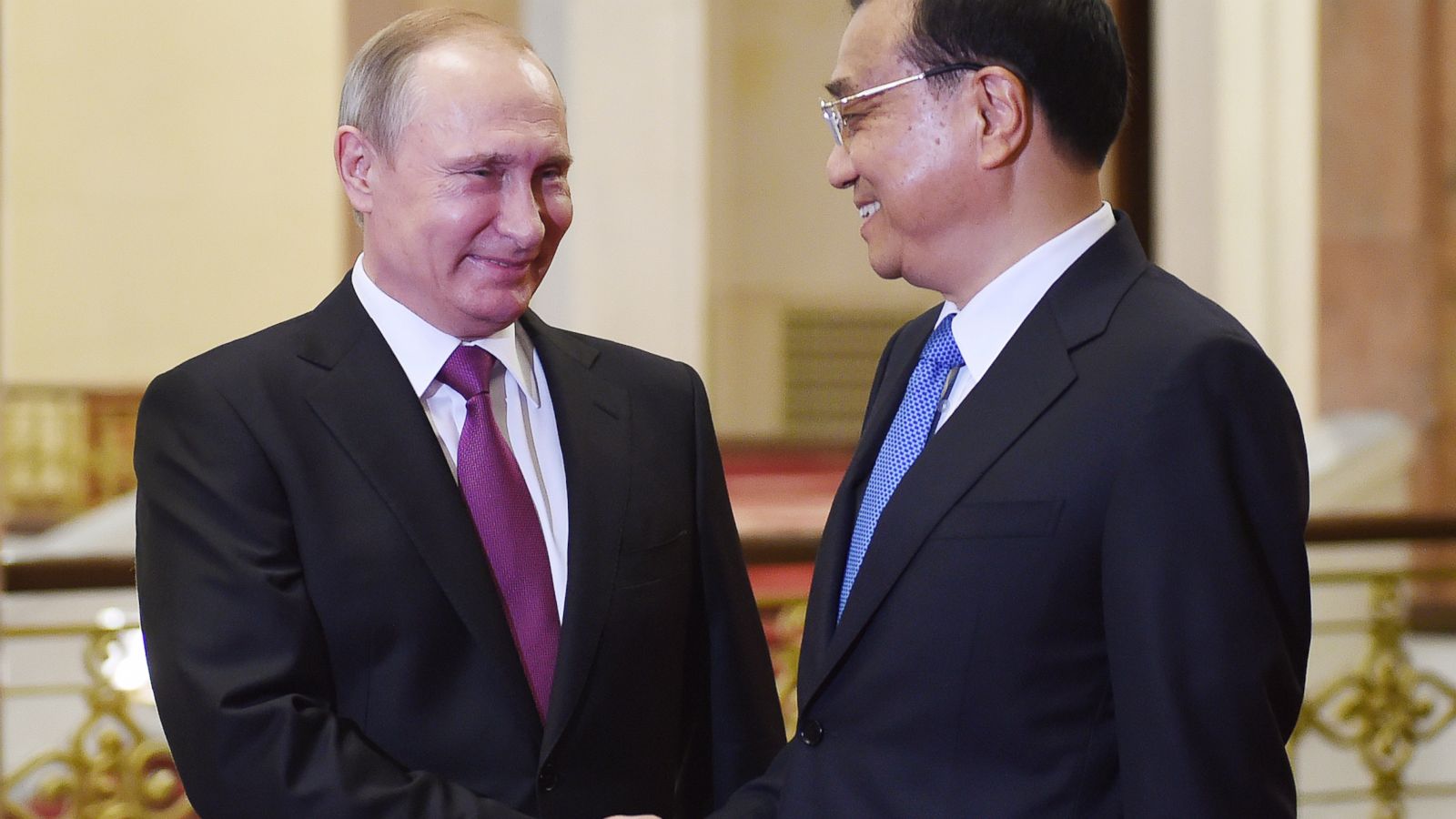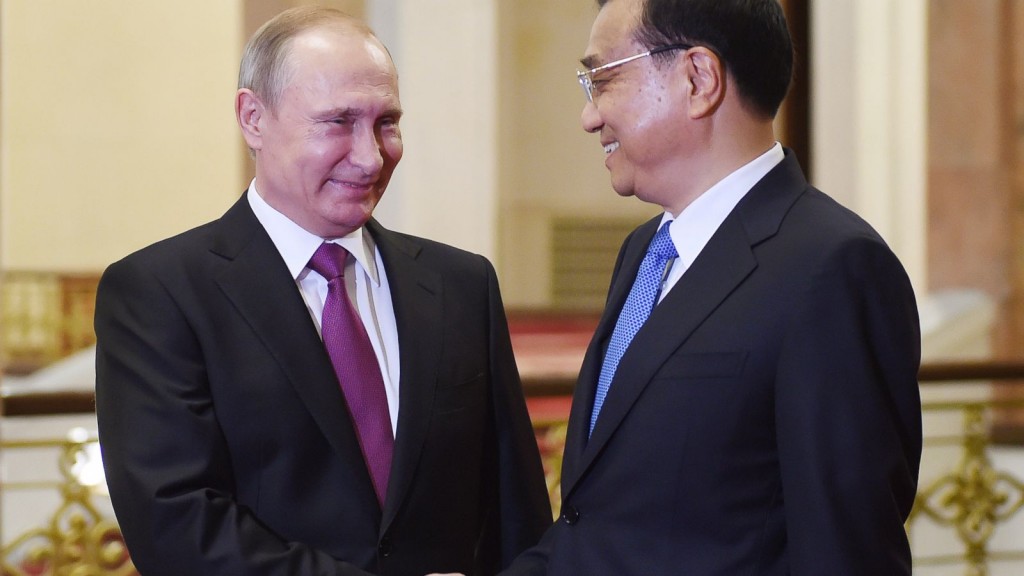Putin Praises ‘All-Embracing’ Partnership of Russia, China

Russian President Vladimir Putin on Saturday emphasized economic ties with China and praised what he called Russia's "all-embracing and strategic partnership" with its neighbor, during a visit to Beijing that takes place against the background of a drop in trade and lingering mistrust.
Putin told Chinese Premier Li Keqiang that ties were based firmly on common economic interests, a reference to Russian hopes for Chinese investment and purchases of its oil, gas and military exports.
"Our relations really have the character of an all-embracing and strategic partnership," Putin told Li at the start of their meeting at the Great Hall of the People in the heart of Beijing.
While Russia and China are linked by cooperation on the international stage, as well as in culture, education and other spheres, "in one way or another, everything has an economic base," Putin said.
Leaders from both countries have extolled the blossoming strategic partnership between the former communist rivals, despite a major decline in two-way trade and the failure to materialize of a slew of ambitious projects.
Observers attribute the slow progress to Beijing's hard-nosed bargaining position and the Kremlin's deep-seated suspicions about the growing might of China.
Putin later met with Chinese President Xi Jinping, to whom he said the people of both countries had a strong desire to "strengthen, develop our relations."
"I'm sure our countries can reach a bigger success in all areas in trade, investment, agriculture, energy, and of course in high tech, which is a priority for us," Putin told Xi.
Xi told Putin that the two countries should "promote widely the idea of being friends forever."
The close personal relationship between Putin and Xi and their shared desire to counter perceived U.S. global domination appear to be the main driving forces behind Russia-China cooperation.
The renewed push to bolster relations with China came after the United States and the European Union imposed an array of crippling sanctions on Russia over its annexation of the Crimean Peninsula in March 2014, cutting its access to world financial markets and blocking the transfer of modern technologies. Moscow was also purged from the Group of Eight leading industrialized nations.
In May 2014, Putin visited Beijing and presided over the signing of numerous deals, including a mammoth 30-year natural gas contract worth $400 billion, seeking to show the West that Russia still had viable options.
A later deal saw a branch of Chinese state-owned energy company CNPC buying a stake in a project to build a giant liquefied natural gas plant on the Yamal Peninsula in the Arctic. Also in December, China's Sinopec bought a stake in Russia's Sibur energy company.
China has also promised to offer multibillion-dollar loans to help build a high-speed rail link between Moscow and the Volga River city of Kazan.
Other ambitious deals have been expected, but most of them have floundered amid Russia's economic uncertainty.
The sharp devaluation of the Russian currency under the double impact of low global oil prices and Western sanctions has been a key factor behind bilateral trade dropping from nearly $100 billion a year in 2014 to just over $60 billion last year. Energy resources account for two-thirds of Russian exports to China.
Moscow has also been unsettled by Beijing's ambitious Silk Road Economic Belt project, intended to encourage infrastructure development in formerly Soviet Central Asia, which Russia sees as its home turf. China has promised to coordinate the project with the Russia-dominated Eurasian Economic Union, but clearly has put an emphasis on bilateral deals with Kazakhstan and other members of the bloc.
The prospect of potential Chinese expansion long has worried residents of Russia's sparsely populated far eastern regions, especially over the Kremlin's decision to surrender significant slices of land along the 4,200-kilometer (2,600-mile) border to China in a 2005 demarcation deal.
While ambitious hopes for closer economic cooperation haven't materialized, Russia and China have bolstered their military ties, which have included joint war games and contacts on missile defense. Russian weapons exports to China, which peaked in the 1990s and fell dramatically in the following decade, have received a new boost recently.
Политика конфиденциальности | Правила пользования сайтом








